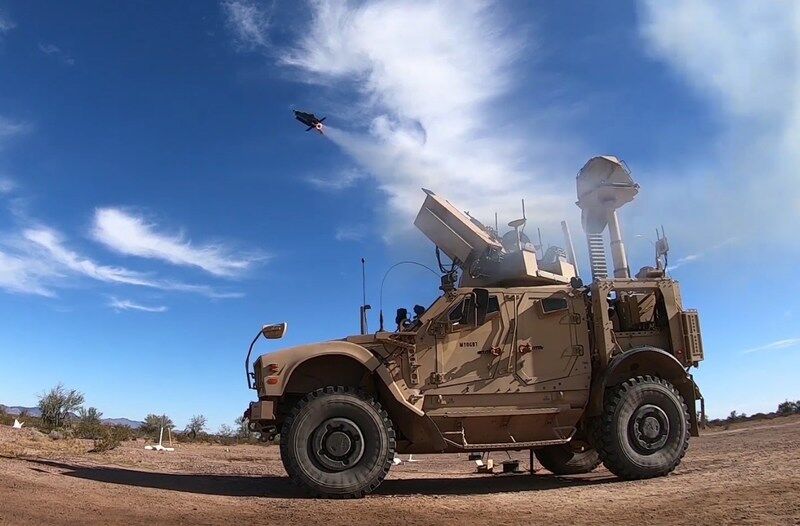Tucson-based Raytheon Missiles & Defense was awarded a Navy contract worth up to nearly $150 million to upgrade its Coyote drone for future missions, including precision-strike capabilities and the ability to launch from unmanned surface vessels and submarines.
Under a contract from the Office of Naval Research, Raytheon will complete design modifications now under way for the Coyote Block 3 unmanned system as part of the “Future Advanced Strike” effort, according to a Defense Department contract notice.
The work will include developing technical data packages, testing for an enhanced-payload air system and a new launch module and a fire-control system, with planned flight tests and operational demonstrations.
The work is to be completed by the end of 2024, with about 60% of the work to be performed in Tucson, and $44.5 million was obligated with the award with a maximum contract value of $146.7 million, the Pentagon said.
The Coyote — originally developed by a Tucson tech startup in the 2000s and later acquired by Raytheon — is a small, low-cost drone that can be tube-launched from the ground, air, or a ship and flown individually or networked together in swarms that can loiter aloft for up to an hour.
With a modular payload, the Coyote can carry a variety of sensors and warheads and was pressed into service a few years ago to meet an emerging threat of swarms of enemy drones.
Raytheon paired the Coyote with its Ku-band Radio Frequency Sensors (KuRFS) radar system to create the Howler Counter Unmanned Aerial System, which was deployed by the Army in 2019 after the service declared defense against drones and other airborne threats an “urgent operational need.”
In April, Raytheon was awarded a $237 million Army contract for KuRFS sensors and Coyote drones.
Besides the original, propeller-driven Coyote, Raytheon has developed the Coyote Block 2, with improved sensors, a jet engine for increased speed and range, and narrow control fins instead of a long main wing and tailfins.
In 2021, a salvo of Coyote 2s engaged and destroyed a swarm of target drones of varying sizes and shapes during tests at the Yuma Proving Ground.
Designed for reuse, Raytheon’s Coyote Block 3 is a propeller-driven, winged version which during testing in 2021 downed a swarm of drone targets using unspecified “non-kinetic” weapons, which could include things like microwave pulses or jamming to bring down targets without contact.
Raytheon declined to comment on the most recent contract, referring questions to the Navy.
Several weapon systems made by Tucson-based Raytheon Missiles & Defense are helping Ukraine fend off Russia's invasion.





